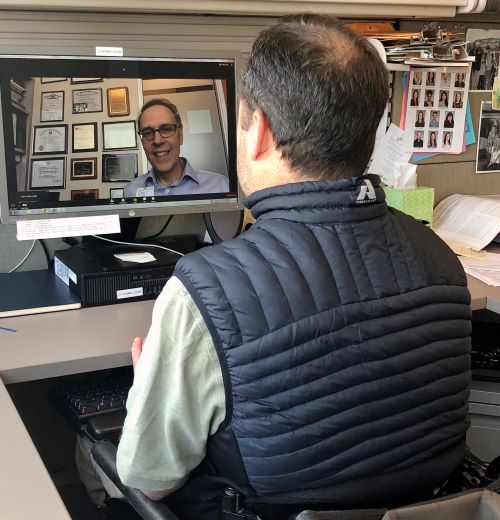Seeking Participants in RCT of Non-drug Treatment for Chronic Pain in Spinal Cord Injury
 Chronic pain affects up to 84% of people living with spinal cord injury (SCI). Medical treatments help, but often do not cure this pain. Not surprisingly, people with SCI want alternative ways to relieve pain. Researchers at the University of Washington are trying to help.
Chronic pain affects up to 84% of people living with spinal cord injury (SCI). Medical treatments help, but often do not cure this pain. Not surprisingly, people with SCI want alternative ways to relieve pain. Researchers at the University of Washington are trying to help.
The lead researcher, Charles Bombardier, PhD, says, “All pain goes through the brain. This means that brain processes, like thoughts, images and feelings about pain, can increase or decrease pain signals. Changing how the brain processes pain actually changes the pain.”
He and his colleague, Mark Jensen, PhD, recently completed a pilot study where they taught 23 people with SCI-related pain to use self-hypnosis plus cognitive therapy to change how their brain processed pain. During self-hypnosis, people learned how to get into a very pleasant relaxed and open mental state. Then people were invited to shift their thoughts, images, and feelings about pain in ways they thought would be most helpful or comfortable. The training sessions all occurred via videoconferencing with the psychologist.
After four training sessions, 43% of participants had their average daily pain intensity drop by at least 33%. Two months after the end of treatment, 52% of participants reported their pain dropped by that much. On a 0-10 scale, pain intensity went down an average of 1.5 points. Bombardier explained, “people got a little more pain relief over time probably because they kept practicing the self-hypnosis and got better at it.”
Ninety-one percent of the participants were satisfied or very satisfied with the treatment. (Note, study results are not published yet)
Now these same researchers are conducting a definitive randomized controlled trial comparing six sessions of self-hypnosis plus cognitive therapy via Zoom to usual care. The study, funded by the Craig H. Neilsen Foundation, can enroll people with SCI and chronic pain from anywhere in the U.S. People who are interested in learning more about the current study can send an email to telepop@uw.edu or call +1.206.221.5688.




